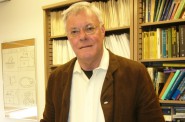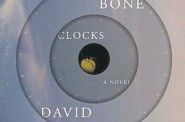Why Great Books in 2014?
Take the challenge and it may change your life.
As we settle into our new year, it is easy to return to the comforting reading patterns of our past. This safe path is hard to leave.
So it is with some trepidation that I recount my reading failure of the previous year and urge you to join me in trying it for yourself! The book site, goodreads.com , declared 2013 as “The Year of Reading Proust” and I fell for it. I had read the first novel in Marcel Proust’s seven-volume masterpiece, “Remembrance of Things Past,” [now translated as “In Search of Lost Time”] as an undergraduate and had been rather baffled by its obsessive recreation of memories and its self-reflexive compulsion to return to the thought of an experience over the actual event. Sound complicated? It is! Yet, I decided to give it the old college try and pledged to read all seven novels during the course of a year.
Dear reader, I only made it through three and a half volumes, but I am a better person for it! I had met my match and come to terms with my limitations, both as a reader and as a thinker. And it is this unappetizing experience that I am trying to convince you to attempt. I’m not recommending Proust, specifically, but tackling something that pushes your limits and expands your mind. As they used to say, it’s the ultimate trip.
The concept of “great books” is something I grew up with. Although I started life in a small town in the New Mexico desert, I was surrounded by books. My parents owned “The Harvard Classics,” a stunning, crimson-bound set of 50 books that purported to be “the college education on a shelf.” My Aunt Joyce had “The Great Books of the Western World,” a much larger and more up-to-date set that had come with the Encyclopedia Britannica. I was fascinated with them and soon started reading snippets on a regular basis.
I’m sure you have all had your experiences with “the classics,” books that were purported to be beloved throughout the ages. Generally, you read one and then asked “why?” Teachers, librarians, and well-meaning relatives often foisted them on us. I remember a very dreary winter when my grandmother insisted I wade through her childhood favorites by Frances Hodgson Burnett. “Little Lord Fauntleroy” – phooey! But there were great discoveries, too: the Oz books by L. Frank Baum, Alcott’s “Little Women,” “Alice in Wonderland,” “Robin Hood,” C.S. Lewis’ Narnia, and the glorious Middle-Earth of Tolkien, among others.
I have friends who have read all of the Bronte sisters’ novels, all of Twain, Dickens, James Joyce, Jane Austin, and more recently, Zora Neale Hurston, Thomas Pynchon, Gabriel Garcia Marquez, Solzhenitsyn, and Toni Morrison. Some of my friends have systematically worked their way through 19th Century British novels, 20th Century Russian novels, all the ancient Greek plays, the epics of India, the Eddas of the Norse, to name a few.
There are also single volumes that challenge us: Tolstoy’s “War and Peace,” “The Tale of Genji” by Lady Murasaki, “Ulysses” by Joyce, Toni Morrison’s “Beloved,” “Gravity’s Rainbow” by Pynchon, “Invisible Man” by Ralph Ellison, Margaret Atwood’s “The Handmaid’s Tale,” “One Hundred Years of Solitude” by Marquez, “Mrs. Dalloway” by Virginia Woolf, or Christine de Pizan’s “The City of Ladies.” To finish one of these great works is to commune with an exemplary mind, to be challenged to live inside someone else’s brain, to be pushed into the eternal questions that have haunted humans since our beginning.
I have only given examples from fiction, but you could easily help me make lists of non-fiction, history, biography, autobiography, plays, or poetry that would serve this same purpose. The amazing works that people have written provide us with a map of humankind’s consciousness over recorded time. To participate in that great struggle to understand and describe what is human is a privilege and, perhaps, a responsibility. So take the challenge and expand the new year beyond your greatest imaginings. Even if you don’t complete your reading quest, you have been reading greatness. And that beats “Little Lord Fauntleroy” any day!
Some thought-provoking guides for choosing your quest include: “How to Read a Book: The Classic Guide to Intelligent Reading” by Mortimer J. Adler and Charles Van Doren (1972), “The Well-Educated Mind: A Guide to the Classical Education You Never Had” by Susan Wise Bauer (2003), “Great Books” by David Denby (1996), and “The New Lifetime Reading Plan: The Classic Guide to World Literature” by Clifton Fadiman and John S. Major (1999). For American literature, nothing equals The Library of America at loa.org . Enjoy!
Upcoming Book Events
Friday January 24, at 7:00 pm – Dr. John Liebert, co-author of “Wounded Minds: Understanding and Solving the Growing Menace of Post-Traumatic Stress Disorder,” and Jennifer Percy, author of “Demon Camp: A Soldier’s Exorcism” at Boswell Book Company.
Monday January 27, at 7:00 pm – Greg Kot, author of “I’ll Take You There: Mavis Staples, the Staple Singers, and the March Up Freedom’s Highway” at Boswell Book Company.
Wednesday, January 29, 7pm – Patrick Ness, author of “The Crane Wife” at Boswell Book Company.
Friday, January 31, 7pm – Malcolm Gladwell, author of “David & Goliath: Underdogs, Misfits, and the Art of Battling Giants” ticketed event at the UWM Helene Zelazo Center, 2419 E. Kenwood Blvd., Milwaukee. Co-sponsored by the UWM Bookstore. On sale now.
Booked Up
-
The Poet Who Made Milwaukee Famous
 Apr 7th, 2015 by Richard Davis
Apr 7th, 2015 by Richard Davis
-
Five Great Books I Meant To Review
 Dec 30th, 2014 by Will Stotts, Jr.
Dec 30th, 2014 by Will Stotts, Jr.
-
An Incredible Debut Novel
 Dec 16th, 2014 by Will Stotts, Jr.
Dec 16th, 2014 by Will Stotts, Jr.

















Love the pic of Proust – and didn’t the Monty Python group once read him endlessly to us in comedy routines? I also admire this line from your review: “To finish one of these great works is to commune with an exemplary mind, to be challenged to live inside someone else’s brain, to be pushed into the eternal questions that have haunted humans since our beginning.”
Thanks, Christina. You are a great reader!
Will, thank you for your insightful challenge to readers everywhere to challenge themselves to read a classic global writer. I would add Haruki Murakami’s massive, but fabulous, 1Q84, to your list of must-reads. Interestingly, Murakami addresses reading Proust in his novel. One of his characters, like you, only made it half-way through after setting herself the challenge of reading 20 pages a day until finishing. She ran into the frustrating gap between her world and Proust’s and found it was like experiencing someone else’s dream, but not being able to feel it or relate to it. Interesting. I am re-reading Remembrance as we speak. It is my reward at the end of the day (I also have it on my iphone and read it whenever I can). One thing I would stress to readers is that reading Proust can be pure pleasure. No one else writes like him. From the fabulous first sentence, “For a long time I used to go to bed early,” to the many amazing descriptive sentences, Proust’s writing is now my favorite word-music. Here’s just one example from the narrator’s memories of walking in the country-side with his grandfather as a boy: ‘… I found the whole path throbbing with the fragrance of hawthorn-blossom. The hedge resembled a series of chapels, whose walls were no longer visible under the mountains of flowers that were heaped upon their altars; while, underneath, the sun cast a square of light upon the ground, as though it had shone in upon them through a window; the scent that swept out over me from them was as rich, and as circumscribed in its range, as though I had been standing before the Lady-altar, and the flowers, themselves adorned also, held out each its little bunch of glittering stamens with an air of inattention, fine, radiating ‘nerves’…” My goodness!
Jon, thanks for your wonderful insights. They prove how deeply we are affected by what we read.